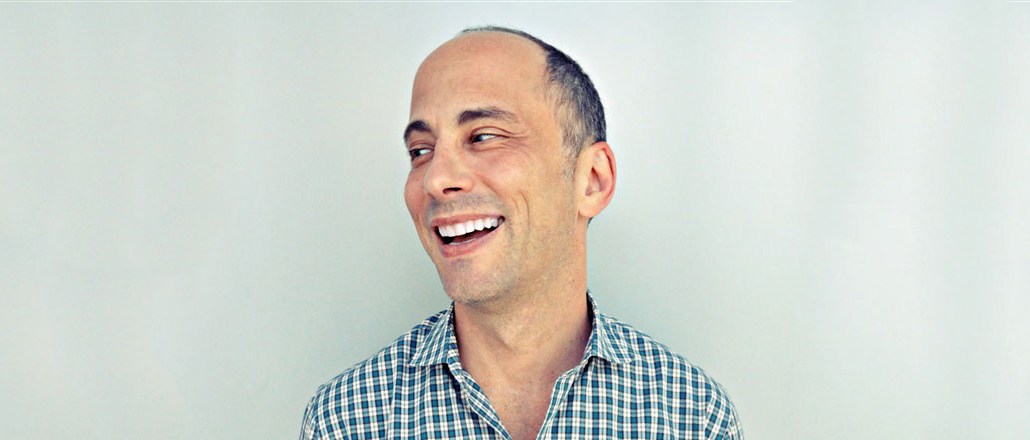Secure your place at the Digiday Media Buying Summit in Nashville, March 2-4
Razorfish founder Jeff Dachis’ next project: To transform health data

Jeff Dachis is bouncing. Just off a flight from the West Coast, the co-founder of Razorfish and a series of other ventures has a new company, and it’s one close to his heart. “I’ve never felt better,” he said.
Earlier this year, Dachis launched One Drop, a diabetes app that tracks the health data all of those battling the disease need, from glucose levels to food, medicines and activity. It’s also a social network that lets you anonymously share that data so people can provide tips, see what others are going through, or just leave a like. And next year, the company will launch into hardware with a glucose meter that Dachis says is unlike everything on the market.
Dachis said that currently, One Drop, which has been in business about 20 weeks, has “multi-tens of thousands of users” and over a million in user-contributed data points. There have been 240,000 user sessions. Each session averages over two minutes. “It’s an active and engaged base,” said Dachis.
For Dachis, who was one of the most prolific symbols of the Internet and tech boom of the early 2000s (he even owned a Lower East nightclub where he had a drink named after him), One Drop is a personal project: He was diagnosed with Type 1 diabetes about two years ago.
Digiday caught up with Dachis to talk about the app, which launched five months ago and today has about $9 million in funding.
Tell me about OneDrop.
A little over two years ago, I dropped 20 pounds in eight weeks and I knew something was up with my health. It turned out I had Type 1 diabetes. I went to the doctor, I got 15 minutes with a nurse practitioner who basically gave me an insulin pen and a piece of paper with instructions and a pat on the back. I was so pissed when I left, that I started Googling where I could find diabetes data.
Why data?
Diabetes is a data-intensive disease. You’re juggling so much information, from carbs to sugars to everything. It’s like doing math on a tightrope while also solving a Sudoku puzzle. There was no place online that had this data in one place. Then, a month into having this disease, I went for a long run and when I was in the elevator, I had a hypoglycemic incident and passed out.
I was so pissed, again. I made a rookie mistake. So the genesis of One Drop comes from a very personal experience. It’s a platform that enables people to log information and share it with people like them. It’s the Waze for diabetes.
How does it compare to your time in advertising?
At Razorfish, there was a sense of purpose that we were really making an impact and the company is doing well. Even today, we’re kicking ass. But it’s so good to be working on something that’s literally impacting someone’s lives where they email you saying how grateful they are that the product is here. On a human level, this is it. Diabetes has for me been such a blessing. I need to take each prick of the finger as a sharp reminder each moment that life has such opportunities.
You’ve been involved in everything going digital for two decades. Why has health not kept up?
The digital revolution touched everything except healthcare. Why has the democratization of the tools of self expression not created a revolution in the democratization of healthcare tools in the world? Who knows. I can’t figure it out. Health is delivered in the most patriarchal relationship — doctor to patient — and it’s not collaborative like media. So we’ve focused on data-driven, self-care, because we have to do it ourselves. It’s the quantified self movement.
Has it been hard getting funding and getting people to listen?
The finances of the company are interesting. At Razorfish, we bootstrapped it the whole way. And we ran in a profitable way throughout the IPO. We had two unprofitable quarters in my entire tenure. But I have experience as an entrepreneur, so my experience is probably different than other people’s. I don’t know that I’m qualified to comment on the process of raising money. But I do think it has gotten much cheaper to do all of the things that used to be very expensive to do, like get servers or a co-working space. Look at all the tech that is available.
More in Marketing

Future of Marketing Briefing: AI’s branding problem is why marketers keep it off the label
The reputational downside is clearer than the branding upside, which makes discretion the safer strategy.

While holdcos build ‘death stars of content,’ indie creative agencies take alternative routes
Indie agencies and the holding company sector were once bound together. The Super Bowl and WPP’s latest remodeling plans show they’re heading in different directions.

How Boll & Branch leverages AI for operational and creative tasks
Boll & Branch first and foremost uses AI to manage workflows across teams.





